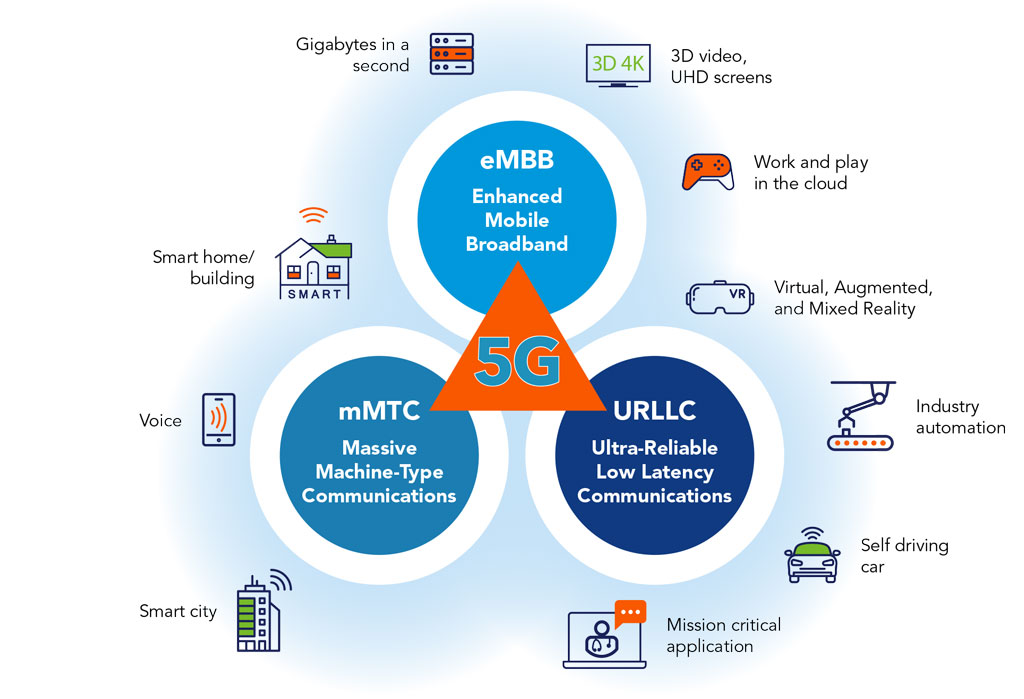Tech Versum: Explore the Future of Technology
Dive into the latest trends and innovations in technology with Tech Versum.
5G: The Tech That’s About to Outpace Your Imagination
Discover how 5G is set to revolutionize technology and reshape the future—get ready to be amazed!
How 5G Technology is Revolutionizing Connectivity
5G technology is set to transform connectivity across the globe, offering significantly faster data speeds and more reliable connections compared to its predecessors. With download speeds reaching up to 10 Gbps, users can experience seamless streaming, rapid downloads, and smooth rural internet access. The introduction of ultra-low latency, often as low as 1 millisecond, enables real-time applications like augmented and virtual reality to flourish. As this technology becomes increasingly available, businesses and consumers alike are beginning to harness the potential of 5G to enhance their everyday experiences and operations.
Moreover, the impact of 5G technology goes beyond just individual users; it is set to revolutionize entire industries. For instance, in sectors such as healthcare, 5G facilitates remote surgeries and telemedicine with its reliable connectivity. In agriculture, smart farming solutions utilizing IoT devices benefit from the high-speed networks. Furthermore, cities are evolving with the implementation of smart technologies, improving traffic management and energy consumption. As we move forward, the widespread deployment of 5G technology promises to boost economic growth and drive innovation in ways we've yet to fully comprehend.

The Future is Here: 5G Applications You Didn't See Coming
The advent of 5G technology is not just a step forward in mobile connectivity; it represents a seismic shift in how we interact with the digital world. One major application that has emerged is augmented reality (AR) and virtual reality (VR) experiences in real-time. With the ultra-fast speeds and low latency of 5G, users can engage in immersive gaming, virtual tourism, and remote collaboration that were previously hindered by slower network technologies. Imagine attending a concert virtually, feeling like you're right in the middle of the crowd, all thanks to 5G.
Another unexpected application of 5G technology can be found in smart agriculture. Farmers are now leveraging the capabilities of 5G to monitor crop health, manage irrigation systems, and coordinate agricultural machinery with pinpoint accuracy. The enhanced connectivity allows for real-time data analytics, which can lead to increased yields and more sustainable farming practices. As more industries begin to adopt this technology, we can expect a more interconnected and efficient future.
What You Need to Know About 5G: Myths vs. Reality
5G technology has generated significant buzz and confusion since its rollout. One of the most persistent myths is that 5G is inherently dangerous to human health. This misconception often stems from misinformation about electromagnetic fields and radiation. In reality, numerous health organizations, including the World Health Organization (WHO), confirm that 5G technology operates well within safe exposure limits. So, while it’s vital to stay informed, the fear surrounding health risks is largely unfounded.
Another common myth is that 5G networks are only beneficial for high-speed internet users. In fact, 5G technology promises to revolutionize not just consumer broadband but also a wide array of industries. From autonomous vehicles relying on real-time data to smart cities that use IoT devices for better resource management, the advantages of 5G extend far beyond personal use. As we transition into this new era of connectivity, understanding both the myths and reality of 5G will help us leverage its full potential.